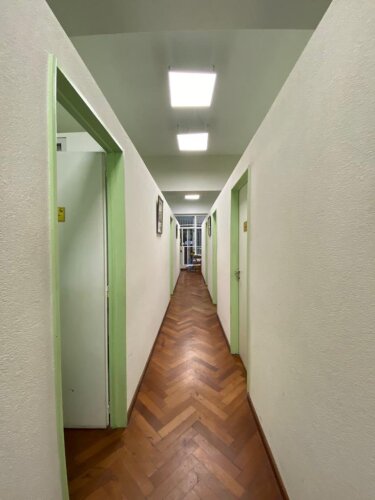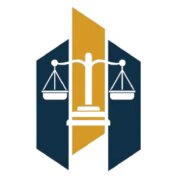Best Faith-Based Law Lawyers in Buenos Aires
Share your needs with us, get contacted by law firms.
Free. Takes 2 min.
List of the best lawyers in Buenos Aires, Argentina
About Faith-Based Law in Buenos Aires, Argentina
Faith-Based Law in Buenos Aires encompasses legal principles and considerations that intersect with religious beliefs and practices. This area of law includes issues that arise in the context of religiously-affiliated organizations, religious freedoms, marriage, divorce, and inheritance matters where religious conventions have an impact. It is influenced by the diverse religious identities present in Buenos Aires, ranging from Roman Catholicism-a significant part of Argentina's religious landscape-to a variety of other faiths including Protestantism, Judaism, and Islam.
Why You May Need a Lawyer
People may find a lawyer specializing in Faith-Based Law necessary for several reasons. Common situations include disputes over religious practices and their compatibility with Argentine laws, issues involving religious institutions or organizations, and personal matters such as marriage and divorce conducted under religious rites. Additionally, legal counsel could be crucial when creating or managing faith-based non-profit entities, addressing workplace rights concerning religious practices, or dealing with inheritance issues where religious doctrines are at play.
Local Laws Overview
The legal framework in Buenos Aires, and Argentina at large, acknowledges freedom of religion as a constitutional right, allowing individuals to practice their faith freely. Laws intersecting with faith-based issues often address the operational limits and privileges of religious organizations, including tax exemptions, property rights, and the right to conduct educational or social services adhering to religious principles. Family law is another area where local laws interplay with religious practices, especially in marriage, where civil and religious ceremonies coexist, and in issues regarding assets distribution and child custody influenced by religious beliefs.
Frequently Asked Questions
How does Argentine law handle marriage and divorce for couples married under religious rites?
In Argentina, couples must be married in a civil ceremony for their marriage to be legally recognized, although religious ceremonies are popular. Divorce is a civil process irrespective of religious affiliations.
Can religious organizations receive tax-exempt status in Buenos Aires?
Yes, religious organizations may qualify for tax-exempt status, provided they meet specific legal criteria under Argentine law, typically concerning their non-profit nature.
What are the legal rights of faith-based schools in Buenos Aires?
Faith-based schools have the right to operate and provide education according to their religious principles, but they must comply with national educational standards and regulations.
Are there workplace accommodations for religious practices in Buenos Aires?
Employers are generally required to accommodate employees' religious practices unless it poses undue hardship, ensuring religious expression does not result in discrimination or exclusion.
How are inheritance rights affected by religious beliefs in Buenos Aires?
Inheritance matters are governed by Argentine civil law, but religious beliefs might influence personal decisions, such as the distribution of personal assets or religious artifacts.
Can faith-based organizations engage in political activities?
While faith-based organizations can participate in some political activities, they must be careful to maintain their non-profit status and not engage in direct political campaigning.
What are the laws regarding religious attire in public spaces?
Argentina respects religious expression, and individuals are generally free to wear religious attire in public, subject to considerations of safety and security in specific contexts.
Are there any laws supporting interfaith marriage?
Interfaith marriages are legally recognized as long as the civil marriage requirements are met, while religious ceremonies depend on the particular guidelines of the denominations involved.
How does Buenos Aires address religious discrimination?
Religious discrimination is prohibited under Argentine law, and there are legal avenues for addressing grievances through human rights organizations and the court system.
What is the process for establishing a new religious organization in Buenos Aires?
Establishing a new religious organization involves registering the entity with the relevant governmental bodies, demonstrating its religious purpose and non-profit nature, and complying with operational regulations.
Additional Resources
For further assistance, consider reaching out to the Argentine Ministry of Justice and Human Rights, which handles religious affairs, and the Instituto Nacional de Asociativismo y Economía Social (INAES), which provides guidance for non-profit regulation. Additionally, interfaith councils and legal advocacy groups in Buenos Aires can offer support and information on navigating faith-based legal issues.
Next Steps
If you need legal assistance in Faith-Based Law in Buenos Aires, consider contacting a local attorney specializing in religious or civil law. It's advisable to prepare relevant documentation and outline your legal questions or issues beforehand. Engage with community organizations for referrals to reputable lawyers, and ensure the legal professional has a clear understanding of both local laws and any specific religious considerations pertinent to your case.
Lawzana helps you find the best lawyers and law firms in Buenos Aires through a curated and pre-screened list of qualified legal professionals. Our platform offers rankings and detailed profiles of attorneys and law firms, allowing you to compare based on practice areas, including Faith-Based Law, experience, and client feedback.
Each profile includes a description of the firm's areas of practice, client reviews, team members and partners, year of establishment, spoken languages, office locations, contact information, social media presence, and any published articles or resources. Most firms on our platform speak English and are experienced in both local and international legal matters.
Get a quote from top-rated law firms in Buenos Aires, Argentina — quickly, securely, and without unnecessary hassle.
Disclaimer:
The information provided on this page is for general informational purposes only and does not constitute legal advice. While we strive to ensure the accuracy and relevance of the content, legal information may change over time, and interpretations of the law can vary. You should always consult with a qualified legal professional for advice specific to your situation.
We disclaim all liability for actions taken or not taken based on the content of this page. If you believe any information is incorrect or outdated, please contact us, and we will review and update it where appropriate.













